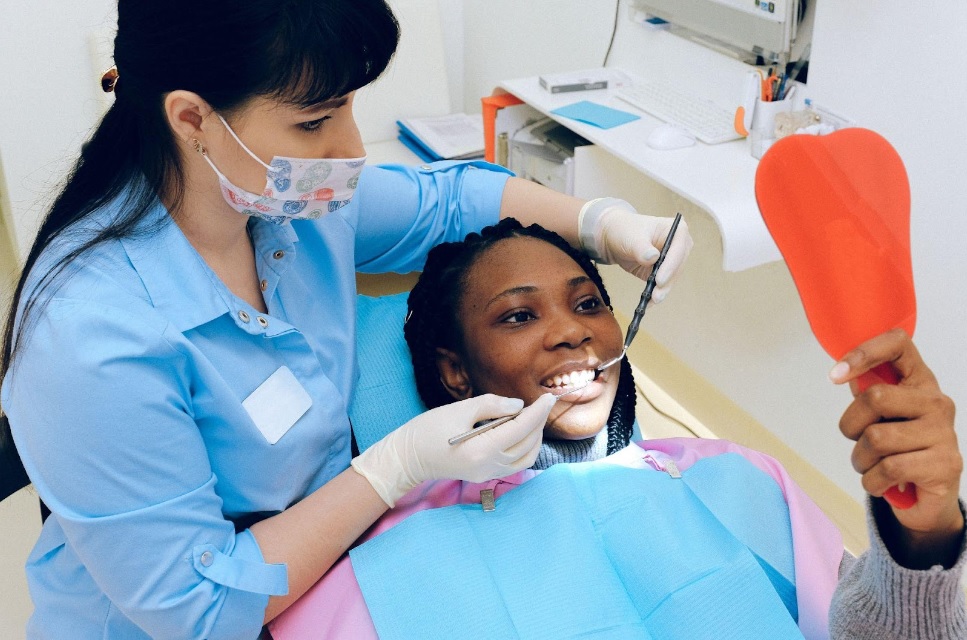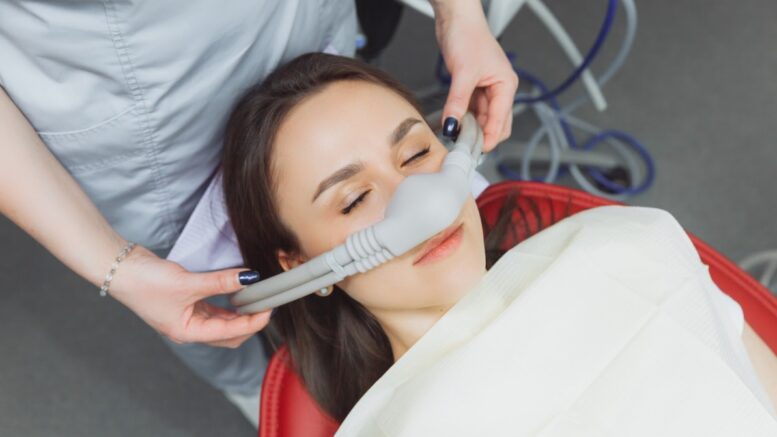Most people experience a certain level of anxiety when visiting a dentist. Aproximentelly 22 percent of them have an extreme fear of dentists, and this phobia in medicine is called odontophobia. The fear of visiting a dentist most often refers to the inconvenience and pain of dental procedures. Although it is completely normal and expected to be nervous when having a dental visitation, some people might experience a significant fear that prevents them from going to the dentist. Avoiding seeing a dentist due to intense fear can lead to neglecting this part of dental care and even necessarily teeth interventions. To make dental examinations and procedures more comfortable for patients, dentists use medications which are known as sedation dentistry. Therefore, the subject of today`s Dentistry Harrisburg NC is dental sedation and the things you should know about it.
Sedation Dentistry
Sedation dentistry considers various techniques and medicaments for treating patients’ pain and anxiety before performing dental procedures. This practice can only be proceeded by a dental professional that is trained and instructed to applicate sedation. Dentists will opt for specific sedation solutions according to the patient’s health and the type of procedure that the patient should undergo. When evaluating what type of sedation to apply to a patient, the dentist will consider the patient’s health issues, age, weight, and other factors. This is a very important part of dentistry sedation because some health conditions exclude certain sedatives or completely probits the application of sedation. For example, taking certain medications or sleep apnea might prevent dentists from administrating sedatives. Also, some lifestyle habits such as smoking or drinking alcohol might be indicators for a dentist to opt for one sedation solution over the other.
Besides comprehending the patient’s overall health condition and history, the dentist constantly monitors the patient’s state and vital signs.
Types of dentistry sedation
Nitrous oxide
Nitrous oxide is popularly known as laughing gas. The name laughing gas, nitrous oxide encompasses because of the sense of silliness, euphoria, and giggling it provides. This gas can come in different flavors, commonly cherry or grape.
This gas patient inhales through a mask that the dentist will place to cover the patient nose. Its effects are noticeable 30 seconds after inhaling. As nitrous oxide is a conscious type of sedation, a patient will remain awake during the procedure but probably won`t remember the entire procedure.
Weakening of nitrous oxide effects are after 3 to 5 minutes but might take up to 15 minutes before the effects completely pass. After using nitrous oxide patients might feel dizzy, light-headed, or nauseous.
Oral sedation
This sedation type is most common in dental practice. Oral sedation considers that the patient orally takes a sedation medication before the dentist appointment. Usually, the dentist will instruct the patient to intake one sedation pill the night before the procedure and another one, one hour just before the procedure. Oral sedation allows the patient to remain awake during the procedure. The disadvantage of oral sedation is that it might cause feelings of tiredness and grogginess afterward. Additionally, oral sedation might even cause a patient to fall asleep.
IV sedation
IV sedation considers intravenous administration of sedative after which the patient falls asleep, making the unconscious during the procedure. This sedation type is particularly convenient for patients that suffer from panic attacks and have an intense fear of dentist procedures. On the other hand, many procedures take a long time, or patients require multiple procedures.
Benefits of sedation dentistry
- Relief from anxiety
- Anterograde amnesia
- Reduction of gag reflex
- Pain relief
- Allows dentists to work

How to prepare yourself for dental sedation
Drink affluence of water the night before the dental procedure
Drinking at least 8 glasses of water a day before the procedure will keep you hydrated the day of the appointment because some dental procedures and sedatives might require abstaining from drinking water and eating on a day or hours after the procedure.
Empty your stomach
Emptying the stomach is a general and primary rule to practice before visiting a dentist. It`s recommended not to eat anything after midnight the night before the appointment. This is because sedation can provoke a feeling of nauseous.
Wear comfortable clothes
Having a dental appointment considers wearing comfortable clothes that won`t stiffen the patient. This also considers avoiding wearing binding waistbands, scratchy seams, and high heels.
Consider canceling appointments for that day
Some sedation options will leave the patient awake and the effects will pass within a few hours, however, the afterward sedation might cause various side effects such as dizziness and sleepiness. As the aftereffects of sedation might vary from patient to patient, it’s recommended to cancel appointments after the procedure as it might lessen your brainpower.
Bring someone to take you home
Even though your sedation left you awake and conscious, you might consider bringing someone with you. Aftereffects of sedation might leave you feeling dizzy and reduce your concentration which can affect your ability to drive safely.
Summary
Sedation dentistry is beneficial for people that experience anxiety, and fear, those who have a hard time sitting still for long, or who require multiple procedures in a single dentist appointment. While making patients feel relaxed and comfortable, sedation dentistry allows dentists to perform procedures more easily and complete procedure efficiently. Most people and children tolerate sedation very well and don’t experience any serious side effects.
